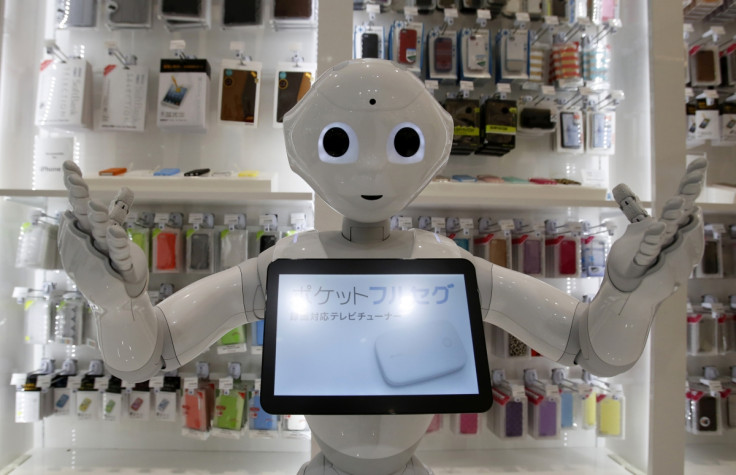SoftBank to Sell World's First Humanoid Robot 'Pepper' in US Next Year

The world's first personal robot named "Pepper" will be sold in US stores next year, Japanese technology company SoftBank has announced.
The 1.2m robot, which is equipped with a laser sensor and 12 hours of battery life, can dance, make jokes and even interpret human emotions based on facial expressions.
The operating system that controls SoftBank's robots resembles the way in which Google's Android software runs smartphones, with users able to customise the technology.
Hundreds of businesses have informed SoftBank of their interest in Pepper and it is thought the robot can be used in the finance, catering, education, construction, healthcare and entertainment industries.
Pepper will first be made available to Japanese consumers for about £1,200 following its launch in February 2015 before hitting the US market next summer.
CEO Masayoshi Son will sell the robot - at a price still to be set - exclusively in the Sprint Corp stores. Softbank acquired a 80 per cent stake in telecommunications company Sprint after a £13bn acquisition last year.
"We will sell Pepper in the United States within a year after gathering information in Japan," Fumihide Tomizawa, head of SoftBank's robotics division, told Bloomberg.
"I won't be surprised if Pepper sales will be half to business and half to consumers," he said.
Pepper, a collaboration between engineers from SoftBank, Chinese manufacturer Foxconn and French developer, Aldebaran Robotics, was first introduced to the world at a press conference in June.
Originally designed for families and the elderly, it increasingly appears as though the robot has captured the imagination of big business.
"We could enter the robot business for industrial use in the mid or long-term," Tomizawa said.
SoftBank is leading the way to establish a strong artificial intelligence sector in Japan, with the country aiming to increase advanced robotics production to £14m by 2020.
Son, who was inspired by the 1960s TV animated series Astro Boy, which follows the adventures of a boy robot, says he expects to improve labour productivity by replacing 90 million jobs with just 30 million robots.
© Copyright IBTimes 2024. All rights reserved.








